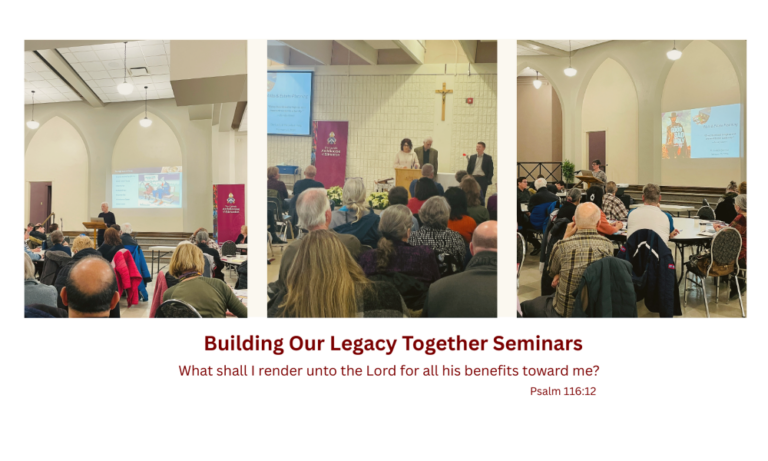“Suffering produces endurance, endurance produces character and character produces hope.”
– St. Paul, Romans 5: 3-4
On June 29th, we will be celebrating the Solemnity of Saints Peter and Paul. As we reflect on the journeys they took in their lives and their faith, paths which ultimately led to their martyrdoms, we get to witness two great examples of perseverance. In the midst of the chaos, trials and struggles of daily life, what can you learn from Saints Peter and Paul about persevering in your marriage?
In Romans 7:15-20, St. Paul states, “I do not understand my own actions. For I do not do what I want, but I do the very thing I hate. Now if I do what I do not want, I agree that the law is good. But in fact, it is no longer I who do it but sin that dwells within

me. For I know that the good does not dwell within me, that is, in my flesh. For the desire to do the good lies close at hand, but not the ability. For I do not do the good I want, but the evil I do not want is what I do. Now if I do what I do not want, it is no longer I who do it but sin that dwells within me.” This internal battle St. Paul refers to in this passage is one that many can relate to in their marriages. How often do spouses go into an interaction resolved to not lose their cool, set the intention to be more charitable, or commit to actions that build up their spouse only to do the opposite of what they wanted to do? We all do things that we regret at times and we will probably continue to do so. Saints Peter and Paul provide us some good examples of how, despite our failings, we can persevere in making the changes we need to so that we can grow in holiness as individuals and as a couple.
Marriage is not always easy! Spouses face many struggles including bearing each other’s faults, the trials of family life, and the hardships of daily living. In Galatians 2:11, St. Paul opposes St. Peter “to his face, because he stood condemned.” Here we see St. Paul challenging St. Peter. Sometimes in your marriage, you may need to be challenged by your spouse to make changes to your behaviour or habits so that you can grow in holiness and vice versa. It can be helpful at times to ask yourself and each other, “What can I be doing better? What can we do better?” The changes that you decide to make will depend on the answer to those questions.
We see St. Peter in the Agony in the Garden where he acts rashly by cutting off the ear of the high priest’s servant (see John 18:10-11), or when he becomes impatient with Jesus when Jesus asks St. Peter repeatedly if he loves Him (see John 21: 15-17). The changes you are called to may also be more interior in nature, such as stretching yourself to grow in patience, instead of acting

rashly. This could involve a variety of strategies depending on what is leading to your struggle with patience. People often say they need to grow in patience, but what is it that is contributing to that lack of patience? If you can take some time to answer that question, it can allow you and your spouse to come up with a concrete plan to make some changes. For instance, if fatigue is contributing to your lack of patience, making adjustments to your sleep hygiene and habits could be one place to start. Or, if there are particular people or behaviours that try your patience, perhaps it would help to reflect on what it is about them that causes you to struggle.
Despite their struggles, Saints Peter and Paul were also witnesses to Christ who inspired many people to conversion and they were instrumental to establishing Christianity in the world. We recommend reading the Acts of the Apostles to see the many examples of conversion brought about by these great saints. You may not be called to this level of evangelization, but you can find little ways to be witnesses to your faith in your marriage and daily life. Perhaps you and your spouse could spend some time reflecting on how you could make your faith more visible to others. For example, you could decide to commit to saying grace before meals when eating out together, invite another couple to do a faith or Bible study with you, start a marriage enrichment group with a small group of couples in your home or at your parish, read a book on the lives of the saints with your children, or say a rosary together while out for an evening walk.
Regardless of which goals you decide on for your marriage, remember that there would not be the need to persevere if lasting change were easy. There will be times when you will fall, and you will do the thing “you do not want.” When Saints Peter and Paul fell, God’s mercy was always there for them. Likewise, be ready to both accept responsibility for what you did, apologize to each other, share with each other what you could do differently next time a similar situation arises, and forgive each other and yourself when you stumble so that you can get back up and continue in your perseverance, which can produce character and hope as St. Paul reminds us in Romans 5: 4.
Despite their shortcomings, Saints Peter and Paul were heroic men who courageously lived out their faith and spread the Gospel, ultimately giving up their lives for their faith in Jesus. May the Solemnity of Saints Peter and Paul inspire you to persevere and bring changes to your life and your marriage
-Melissa Guzik and Jean MacKenzie are registered psychologists who work in private practice in Edmonton. Watch for their monthly column on marriage and family life. Melissa and Jean are co-authors of the To Know, Love and Serve: A Path to Marital Fulfilment book and workbook. They have lectured and led workshops at St. Joseph Seminary, Newman Theological College and dioceses across Canada.




